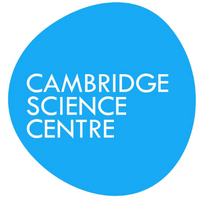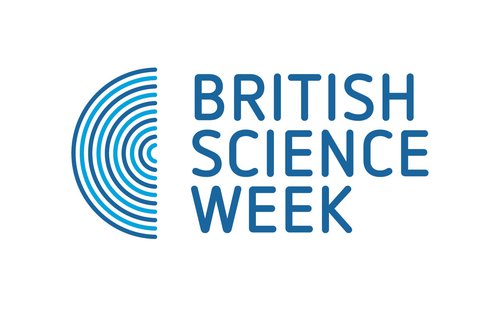Bringing Science to life
18 Mar 2022
We spoke to our friends at Cambridge Science Centre to hear what British Science Week means to them...

Our team at Cambridge Science Centre have one mission! We want every young person to enjoy Science, Technology, Engineering, and Mathematics (STEM) and have access to a better life, community, education and career opportunities offered through creative, analytical thinking.
We aim to inspire children to have a go, get things wrong, work things out and just be curious. Curiosity is one of our mission goals, so we live and breathe it and endeavour to make our engagements as creative, fun, and exciting as possible. By having a go, science can be brought to life for children in the simplest form and by more complex engagements. If, by showing children that they can just ‘have a go’, and give them the confidence to grasp that opportunity, then our job is done! Nothing is more satisfying than watching a child explore our exhibits, watch a show, or take part in an activity, and then go to that next step and have a go at exploring something which inspires them.
This is why British Science Week is so important to us. The week gives us all a renewed incentive and inspiration to try new things. This year’s theme, ‘Growth’, offers fantastic opportunities to explore a wide range of activities, whether you decide to focus on plant growth or go for a different approach and focus on creating building structures. There are so many different angles teachers, parents and our team can dip into and try out.
If this year’s theme encourages just one child to have a go and perhaps grow a seed or inspires a local community group to hold an event for their neighbourhood youngsters, then it has achieved its aims of raising awareness around STEM and sparking enthusiasm.
British Science Week offers a range of free downloadable activities for all ages, from Early Years children upwards. Why not dip in and have a go yourself? There are some fantastic ideas on the website: www.britishscienceweek.org
Why do we, as a team, support British Science Week?
Our Senior Leadership Team includes Mandy Curtis, our head of exhibitions; Rebecca Porter, head of development; Andrew Farrer, head of programmes and delivery; and Claire Elbrow, head of marketing. We have our own reasons as to why we feel our approach works within schools and helps children engage with British Science Week.
We'll explain!
Mandy Curtis
We obviously use the National Curriculum as a basis for everything we deliver to schools, but beyond that, we tap into themes and concepts that are familiar to children. Relating to things they already know helps put things into context for children and build their science capital. We reinforce that science is everywhere and in everything, allowing them to understand that science is for them. Add that to the passion we all have for engaging children and young people in science, and we have an approach that really makes a difference in schools. British Science Week offers an amazing opportunity to anyone to just have a go. Teachers can easily download a range of activities that can be incorporated into the week’s activities.
Rebecca Porter
Making science accessible and relatable is what CSC is all about. My role focuses on underpinning the Centre's work with sustainable funding, ensuring that as many children as possible benefit from CSC's engagement. For many of the children we engage with, STEM subjects act as a springboard to be something better, something more. I love knowing that the work we do is helping children to unlock their potential and increase their self-belief, particularly young learners in underserved communities. British Science Week helps us achieve this aim – it gives everyone an opportunity to unlock that potential and just have a go.
Andrew Farrer
I loved science at school, and I loved being a local amateur dramatics society and sports club member. I didn't get the chance to explore science outside of school, though, like I did drama and sport. Cambridge Science Centre's ability to be present in any school and community is really wonderful and makes science part of the everyday. I am really proud of the work we all do together, including the amazing British Science Week team, to support people as they realise they can be a scientist, a technologist, an engineer, or a mathematician.
Claire Elbrow
With a background in early years education, and obviously marketing, my interest was initially piqued by Cambridge Science Center's approach to bringing science into schools and communities. For me, the key to engaging children with science is confidence. Confidence to have a go, do something different, for things to go not quite as expected and to dip straight back in and have another shot! The hands-on approach of our science communicators encourages this completely.
Children just engage. My role means that I am not in the Centre much as I am a little more office-based, but nothing is nicer than listening to a group of school children getting involved, getting excited and noisy, and just having fun. What I love about British Science Week is that any child can have a go. The activities offered each year are so varied and available to parents and carers, or community group leaders in the same way as they are offered to teachers.
To find out more about us, go to www.cambridgesciencecentre.org
British Science Week is a ten-day celebration of science, technology, engineering and maths that will place between 11-20 March 2022. To find out more visit https://www.britishscienceweek.org/
To celebrate the week we have hosted a number of career inspiration webinars shining a spotlight on different careers pathways available to young people considering careers in STEM.
